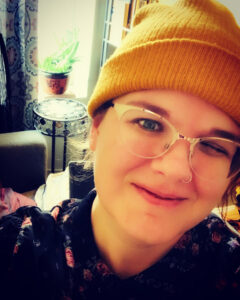I believe Fredrick Douglas would be the model I would use for many reasons. One of the most important is that it is a speech I would like to write. When reading Douglas, I tried to imagine how he would have delivered that speech. The inflection of his voice, where he would place emphasis, what gestures would he make. I can only interpret the text as its written words and punctuation. No recordings are available. Fredrick Douglass was one in the last generation before electronic media began. Walt Whitman one of my favorites, fortunately was recorded on a wax roll as the technology was being developed. No such luck with Douglas, he was described as capturing an audience spellbound during his long orations. There is only description of his delivery one is from the abolitionist newspaper in 1850 The Daily Bugle;
” His voice is full and rich, and his enunciation remarkably distinct and musical. He speaks in a low conversational tone most of the time, but occasionally his tones roll out full and deep as those of an organ. The effect is electrical.”
Another reason I would like to use Douglas is because he is trying to be persuasive. I also have a belief, an idea, I would like to sway an audience of participants and the regulating authority on. Besides Douglas’s 4th of July speech’s powerful content which I believe would be excessive in my circumstance. I would like to echo his use of metaphor and self-exploring rhetorical questions. This technique brings the audience close to establish a relationship with the speaker. It allows to understand why the speaker is attempting to influence others. It allows them to understand the speaker from an intellectual point of view without having read out a biography. That the point is well thought out and cohesive, which in turn hopefully would get that recognition. Creating a possibility that even if some persons were not convinced, it would leave the door somewhat ajar for another attempt at entry into the room of their minds.
My audience would be comprised of YouTube who is one of Googles subsidiaries and YouTube users. YouTube is described as a online video-sharing platform with most of its content being uploaded from users. As this is the case, users can be the stronger influencers of the platform and are the primary target of my speech. YouTube with its head office being Google they are both in the target reticle. Since its inception there has been pushback from users due to its censorship algorithms. Other similar video platforms have since been developed with many of them claiming to be less restrictive. If a mass “exodus” (a nice biblical reference) or threat of same could be persuaded. Perhaps the company can be influenced to listen to users with a more sympathetic ear.
In creating my speech first I would like to walk down memory lane so to speak. As I have already referred to as “The Wild West”. When just about everything was posted, from the most boringly mundane, to the captivatingly absurd. This I consider a bonding of sorts, were other users can recall some of the earlier most popular sites. I would like from there to transition describing the changes that have occurred, as Google purchased the platform and have strengthened their control of content. Here I would like to make a very humanistic appeal of having control of creations and the evaluation of those creations. Can we as a people not police ourselves? Are we to just accept what the company says is viewable or not. Are there not any alternatives demonetizing or blocking. Perhaps a responsible parent can opt to agree or disagree to YouTube’s child content restrictions. With the content flagged for individual user discretion but not removed. I would like to get across the possibility that what is clothed in sheep’s skin, may have the proverbial wolf underneath. Whose intention is as stated for your own protection, however, uses this censorship authority to suppress an opposing view. Certainly, plenty of content can fit into the obtuse definitions as hate speech, or obscene. Many do argue that it is YouTube’s house so its their rules. So again, we ask ourselves can we truly have a completely open medium? Why can we not police ourselves intellectually.





Leave a Reply